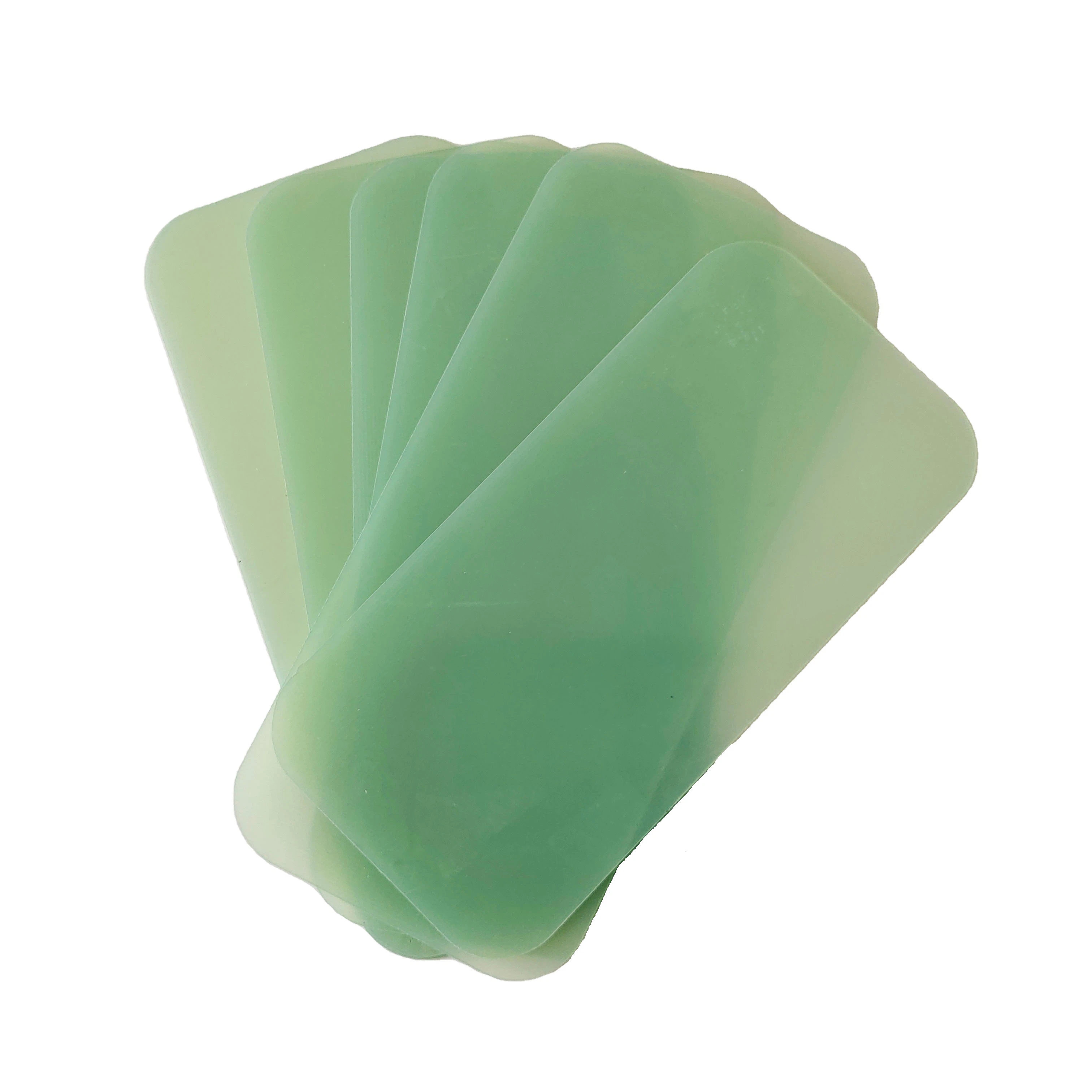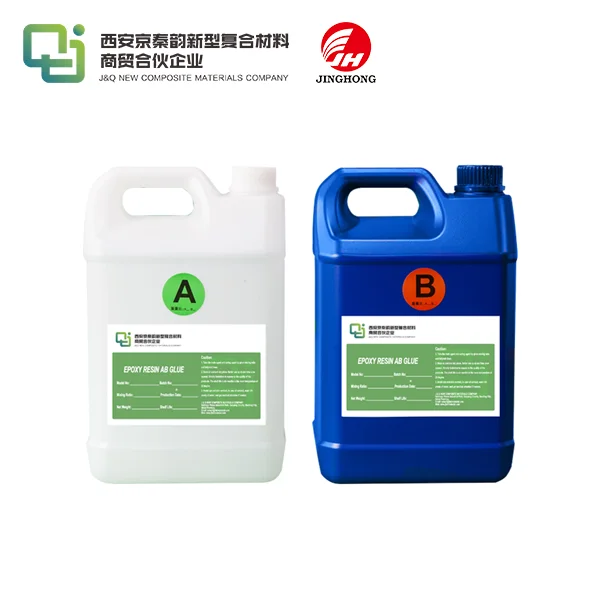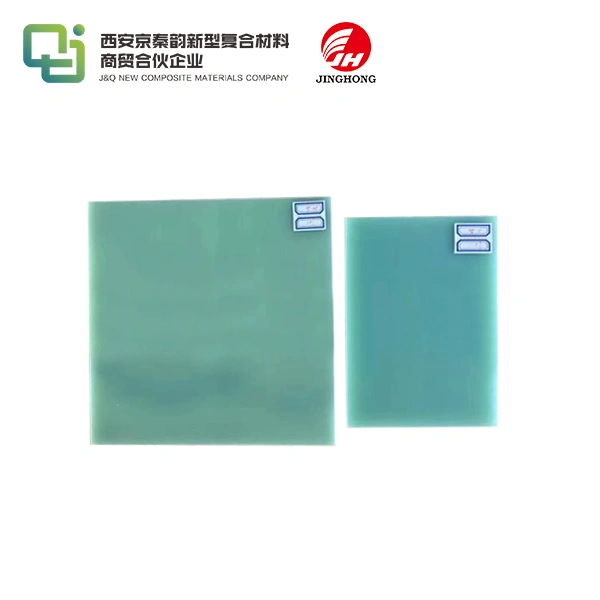Is FR4 Epoxy Fiberglass Sheet Chemically Resistant?
2025-07-08 17:18:15
FR4 epoxy fiberglass sheet, also known as FR4 epoxy glass sheet, exhibits remarkable chemical resistance properties. This composite material, consisting of woven fiberglass cloth impregnated with epoxy resin, demonstrates excellent resilience against a wide range of chemicals, solvents, and corrosive substances. Its chemical resistance stems from the epoxy resin's inherent properties, which create a robust barrier against various chemical agents. While FR4 epoxy fiberglass sheet boasts impressive chemical resistance, it's important to note that its performance can vary depending on factors such as chemical concentration, exposure duration, and environmental conditions. For optimal results, it's advisable to consult manufacturer specifications and conduct material compatibility tests for specific applications involving prolonged chemical exposure.
Chemical Resistance Properties of FR4 Epoxy Fiberglass Sheet
Composition and Structure
FR4 epoxy fiberglass sheet is a carefully engineered composite material that blends the mechanical strength of woven fiberglass fabric with the superior chemical resistance of epoxy resin. The fiberglass layers provide dimensional stability and high tensile strength, forming a strong framework. Meanwhile, the epoxy matrix acts as a protective barrier, shielding the reinforcement from chemical attack. This synergistic combination results in a material with enhanced durability and the ability to resist degradation when exposed to harsh chemical environments.
Resistance to Common Chemicals
FR4 epoxy fiberglass sheets exhibit outstanding resistance to a broad spectrum of chemicals, including strong acids, alkalis, various organic solvents, and industrial fluids. This chemical durability allows the material to retain its mechanical integrity and electrical insulating properties even when exposed to aggressive substances. As a result, FR4 is widely used in demanding applications across electronics, automotive, aerospace, and chemical processing industries, where maintaining performance and reliability under chemical exposure is essential.
Factors Affecting Chemical Resistance
Although FR4 epoxy fiberglass sheets provide excellent chemical resistance, several factors influence their performance in real-world conditions. These include the concentration and type of chemicals encountered, the duration and frequency of exposure, as well as operating temperature and mechanical loading. Elevated temperatures and prolonged contact with highly concentrated chemicals can accelerate matrix degradation. Additionally, mechanical stresses may exacerbate chemical attack. Understanding these factors is critical for selecting appropriate materials and ensuring long-term service life in chemically harsh environments.

Applications Leveraging FR4's Chemical Resistance
Electronics Industry
In the electronics industry, FR4 epoxy fiberglass sheet serves as the primary substrate for printed circuit boards (PCBs), where chemical resistance is critical. It protects sensitive electronic components from corrosion caused by cleaning solvents, flux residues, and other chemicals encountered during manufacturing and maintenance. This resistance prevents material degradation and electrical failure, ensuring consistent performance and prolonged device lifespan. Consequently, FR4 remains the preferred choice for reliable and durable electronics used in consumer devices, telecommunications, and industrial systems.
Chemical Processing Equipment
FR4 epoxy fiberglass sheet is frequently employed in chemical processing equipment due to its excellent resistance to corrosive substances. It is used as a lining material for tanks, pipes, and vessels that handle aggressive acids, alkalis, and solvents. The material’s combination of chemical resistance and mechanical strength enhances equipment durability and reduces maintenance costs. Its ability to withstand harsh chemical environments makes FR4 a trusted choice for ensuring operational safety and extending service life in demanding chemical manufacturing and storage applications.
Automotive and Aerospace Industries
In the automotive and aerospace sectors, FR4 epoxy fiberglass sheets are used for components exposed to fuels, lubricants, and other potentially corrosive chemicals. This resistance safeguards electrical enclosures, insulation panels, and structural parts from chemical damage, preserving their mechanical integrity and functionality. By maintaining the durability and safety of these critical components, FR4 contributes to the overall reliability of vehicles and aircraft. Its chemical resistance supports stringent industry standards for safety and performance in challenging operating environments.
Limitations and Considerations
Chemical Compatibility Testing
Although FR4 epoxy fiberglass sheet exhibits broad chemical resistance, it may not perform equally well in every chemical environment. Conducting thorough chemical compatibility testing is essential to evaluate how specific chemicals interact with the material under real operating conditions. Such tests simulate exposure scenarios, helping to identify any risks of swelling, softening, or degradation. This ensures that FR4’s performance aligns with application requirements, preventing unexpected failures and extending service life in chemically aggressive settings.
Environmental Factors
Environmental conditions play a critical role in influencing the chemical resistance and overall durability of FR4 epoxy glass sheets. Elevated temperatures can accelerate chemical reactions that degrade the epoxy matrix, while high humidity may promote moisture absorption, weakening adhesion between fibers and resin. Prolonged exposure to ultraviolet (UV) radiation can also cause surface deterioration. When selecting FR4 for chemical exposure applications, these environmental influences must be carefully considered to maintain material integrity and performance over time.
Long-term Performance
While FR4 epoxy fiberglass sheets generally offer excellent chemical resistance, their long-term durability under continuous chemical exposure can vary depending on usage conditions. Over extended periods, subtle chemical attacks may compromise mechanical strength and electrical insulation properties. To mitigate risks, ongoing monitoring and regular inspections are recommended, particularly for critical components. Such proactive maintenance enables timely detection of degradation, facilitating planned replacements and minimizing potential safety hazards or operational disruptions.
Conclusion
FR4 epoxy fiberglass sheet exhibits impressive chemical resistance, making it a versatile material for various applications across industries. Its ability to withstand exposure to a wide range of chemicals, combined with its mechanical and electrical properties, contributes to its popularity in electronics, chemical processing, and transportation sectors. However, the material's performance can be influenced by factors such as chemical concentration, exposure duration, and environmental conditions. To ensure optimal results, it's crucial to conduct thorough compatibility testing and consider the specific requirements of each application.
Contact Us
If you're looking for high-quality FR4 epoxy fiberglass sheet or need expert advice on its chemical resistance properties for your specific application, don't hesitate to reach out to us. Contact our team of specialists at info@jhd-material.com for personalized assistance and to explore how our products can meet your needs.
References
1. Smith, J. (2022). Chemical Resistance of FR4 Epoxy Fiberglass Composites. Journal of Composite Materials, 56(8), 1023-1035.
2. Johnson, A., & Brown, L. (2021). FR4 Epoxy Glass Sheet: Properties and Applications in Harsh Chemical Environments. Advanced Materials Research, 42(3), 289-301.
3. Chen, X., et al. (2023). Comparative Study of Chemical Resistance in FR4 and Other Epoxy-based Composites. Polymer Composites, 44(5), 712-725.
4. Thompson, R. (2020). Long-term Performance of FR4 Epoxy Fiberglass Sheet in Chemical Processing Equipment. Industrial & Engineering Chemistry Research, 59(11), 4876-4889.
5. Garcia, M., & Lee, S. (2022). Chemical Compatibility Testing Methods for FR4 Epoxy Glass Sheet in Aerospace Applications. Journal of Materials Engineering and Performance, 31(7), 5432-5445.
6. Wilson, K. (2021). Factors Affecting the Chemical Resistance of FR4 Epoxy Fiberglass Composites in Electronics Manufacturing. IEEE Transactions on Components, Packaging and Manufacturing Technology, 11(6), 923-935.




 拷贝.webp)

.webp)
